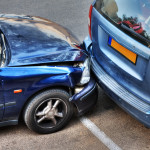Car insurance is a legal requirement, even if the car isn’t being used on the road – unless it’s been officially declared as ‘off the road’.
There are three types of insurance cover, offering different levels of cover – and different costs.
Third party
This is the most basic type of cover, and the minimum legal requirement for car insurance. It covers any third party (including your passengers) and the other vehicle and/or property, but it doesn’t cover damage to your own vehicle. So, if the accident was your fault, you have to pay for your own repairs. If it’s not your fault, you need to claim against the other driver’s insurance policy.
Third-party cover is usually taken by owners of older vehicles whose value is less than the cost of any likely repairs. Newly qualified drivers go for third party insurance, too, because they believe it will be the cheapest option. In fact, because insurers price for risk, and claims statistics show that new drivers are more likely to be involved in an accident than those with more experience, the cost of third-party cover has increased significantly in recent years. It can often be more expensive than more comprehensive policies.
Third party, fire and theft
Stepping up from third-party insurance, this type of policy adds cover for your vehicle if it’s stolen, damaged or destroyed by fire, but it still won’t cover your own costs if the accident was your fault.
Fully comprehensive
Three-quarters of drivers opt for fully comprehensive motor insurance. As the name implies, it covers pretty much everything, including you, your vehicle, your passengers and property, as well as that of the other party/parties. It will provide cover if your car is stolen, damaged or set alight, and insure you to drive other vehicles.
The level of cover varies between insurers, though. Some policies might not include legal protection, breakdown and even windscreen cover, or a courtesy car. Adding these ‘perks’ onto the policy could easily add the cost to the premium quote. Scour the small print to ensure you don’t get caught out.










